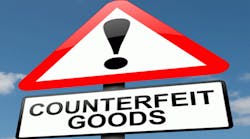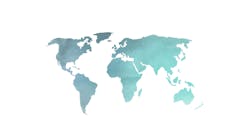In an effort to address the issue of counterfeit goods, on Jan. 24 the Department of Homeland Security (DHS) released its first report pursuant to President Trump’s April 3, 2019, Memorandum on Combatting Trafficking in Counterfeit and Pirated Goods.
“Trade in counterfeits not only damages our economy, but it also threatens national security and consumer health and safety,” said Acting Commissioner Mark Morgan, “Counterfeits hurt the company whose products are pirated, but the profits from counterfeiting can also fund other serious crimes, including narcotics trafficking and even terrorism.”
The rapid growth of e-commerce platforms has helped fuel the growth of counterfeit and pirated goods into a half-trillion-dollar industry. This illicit trade has an enormous impact on the American economy by eroding the competitiveness of American workers, manufacturers and innovation. These goods also represent a national security threat as they may be introduced into critical supply chains or used to generate revenue for transnational criminal organizations.
“With this historic report, all of the bad actors in e-commerce who have been taking a free ride on the pocketbooks of consumers, the backs of American workers, and the innovations of IP rights holders are officially on notice that DHS and this administration will immediately begin taking the strongest steps possible to combat counterfeit trafficking,” said Dr. Peter Navarro, Assistant to the President, and Director of Trade and Manufacturing Policy.
The first-ever report outlines a series of recommendations and actions that can be taken by both the federal government and industry partners to combat this illicit trade epidemic.
Recommendations
Ensure Entities with Financial Interests in Imports Bear Responsibility
Increase Scrutiny of Section 321 Environment
Suspend and Debar Repeat Offenders; Act Against Non-Compliant International Report
Apply Civil Fines, Penalties and Injunctive Actions for Violative Imported Products
Leverage Advanced Electronic Data for Mail Mode
Anti-Counterfeiting Consortium to Identify
Analyze Enforcement Resources
Create a Modernized E-Commerce Enforcement Framework
Access Contributory Trademark Infringement Liability for Platforms
Re-Examine the Legal Framework Surrounding Non-Resident Importers
Establish a National Consumer Awareness Campaign



